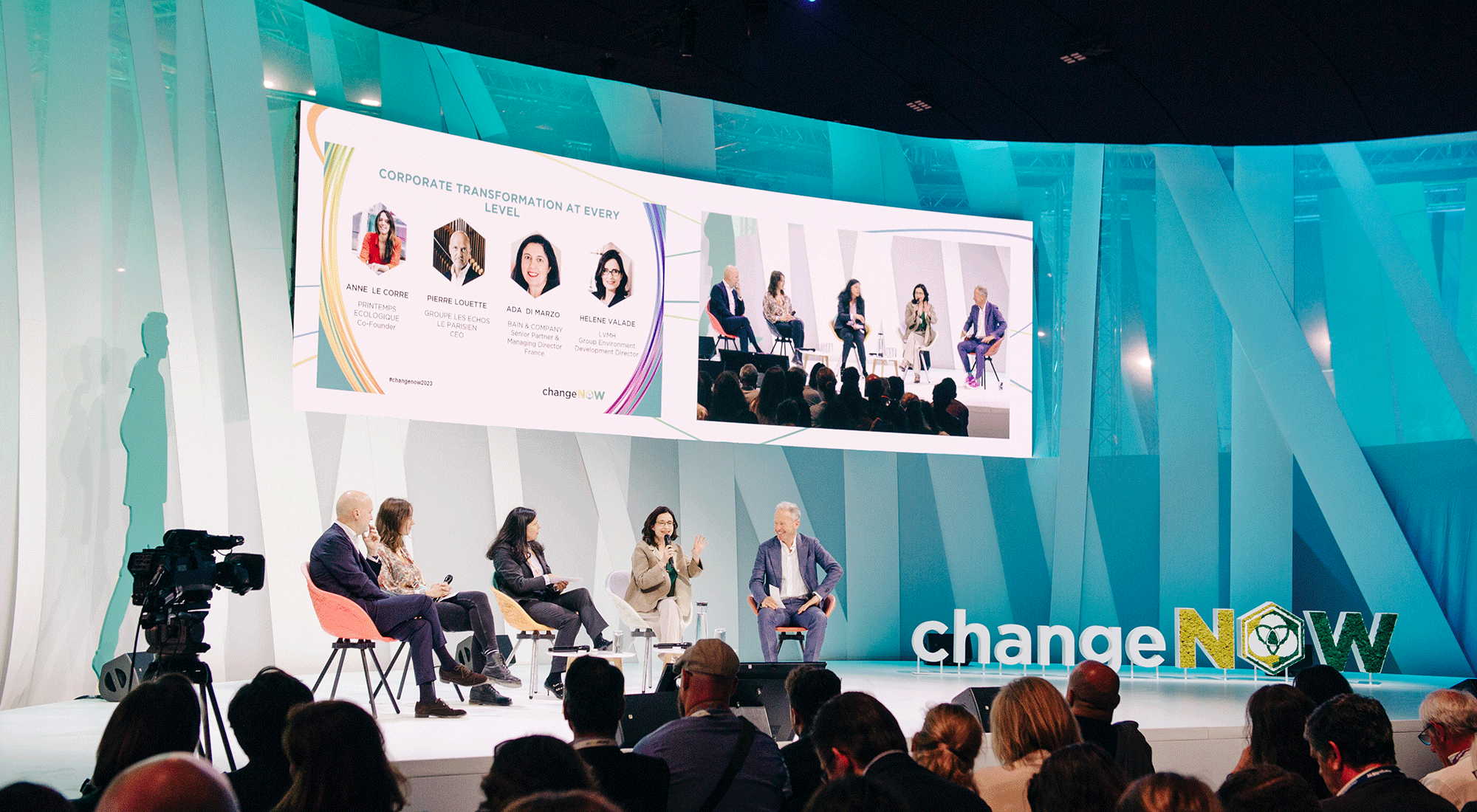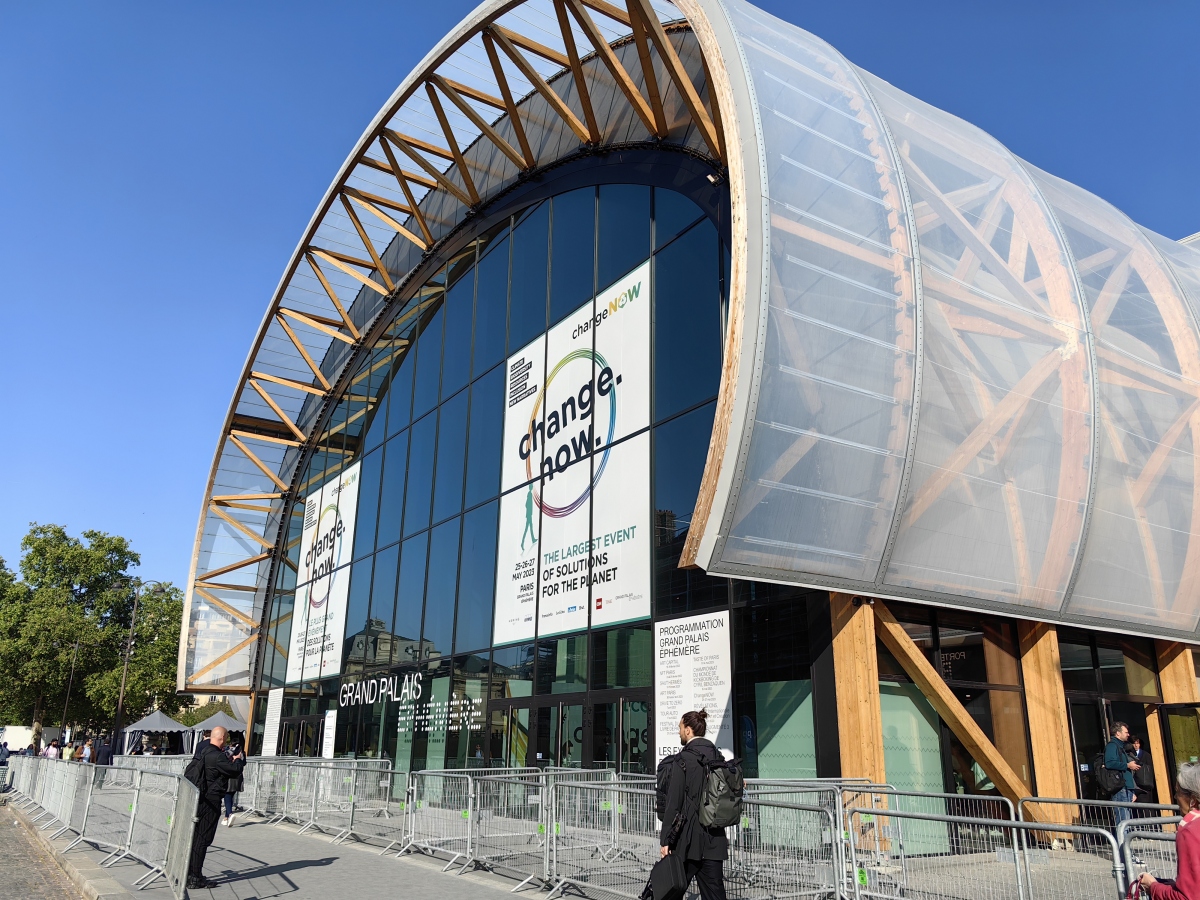Moët Hennessy has introduced its first international sustainability event to the Chinese market, facilitating a real-time cross-border connection between experts, scholars, corporate executives, and public welfare representatives from China and France to jointly discuss critical issues surrounding soil protection and regeneration.
From October 8 to 9, Moët Hennessy, the premium wines and spirits division of LVMH, in collaboration with ChangeNOW, a globally renowned organization focused on accelerating ecological and social transformation, hosted the second “World Living Soils Forum” at the main venue in Arles, France, with satellite venues in Ningxia, China, and California, USA.
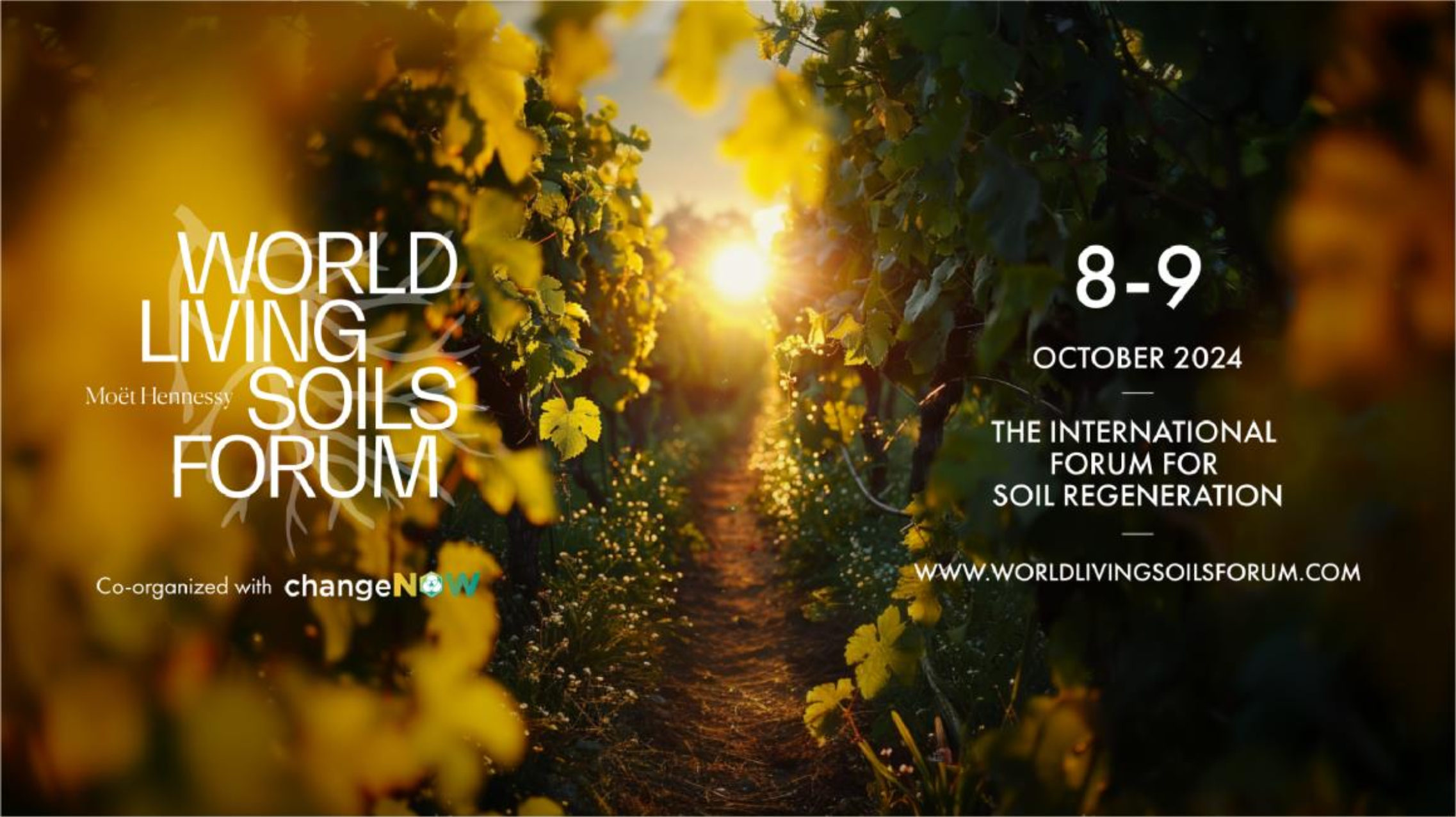
On October 9, Luxeplace.com was invited to attend the Chinese leg of the forum, held at Domaine Chandon, located at the foot of the Helan Mountains in Yinchuan, Ningxia.
In her opening speech at the main venue in Arles, Sandrine Sommer (pictured below left), Chief Sustainability Officer of Moët Hennessy, emphasized: “Today, soil protection is more critical than ever. Faced with increasingly severe environmental and agricultural challenges, Moët Hennessy remains committed to taking active steps to accelerate soil regeneration. I am pleased that this year, China can also join this sustainability initiative, and I hope this Sino-French collaboration will serve as an opportunity to inject new energy into global soil regeneration efforts.”
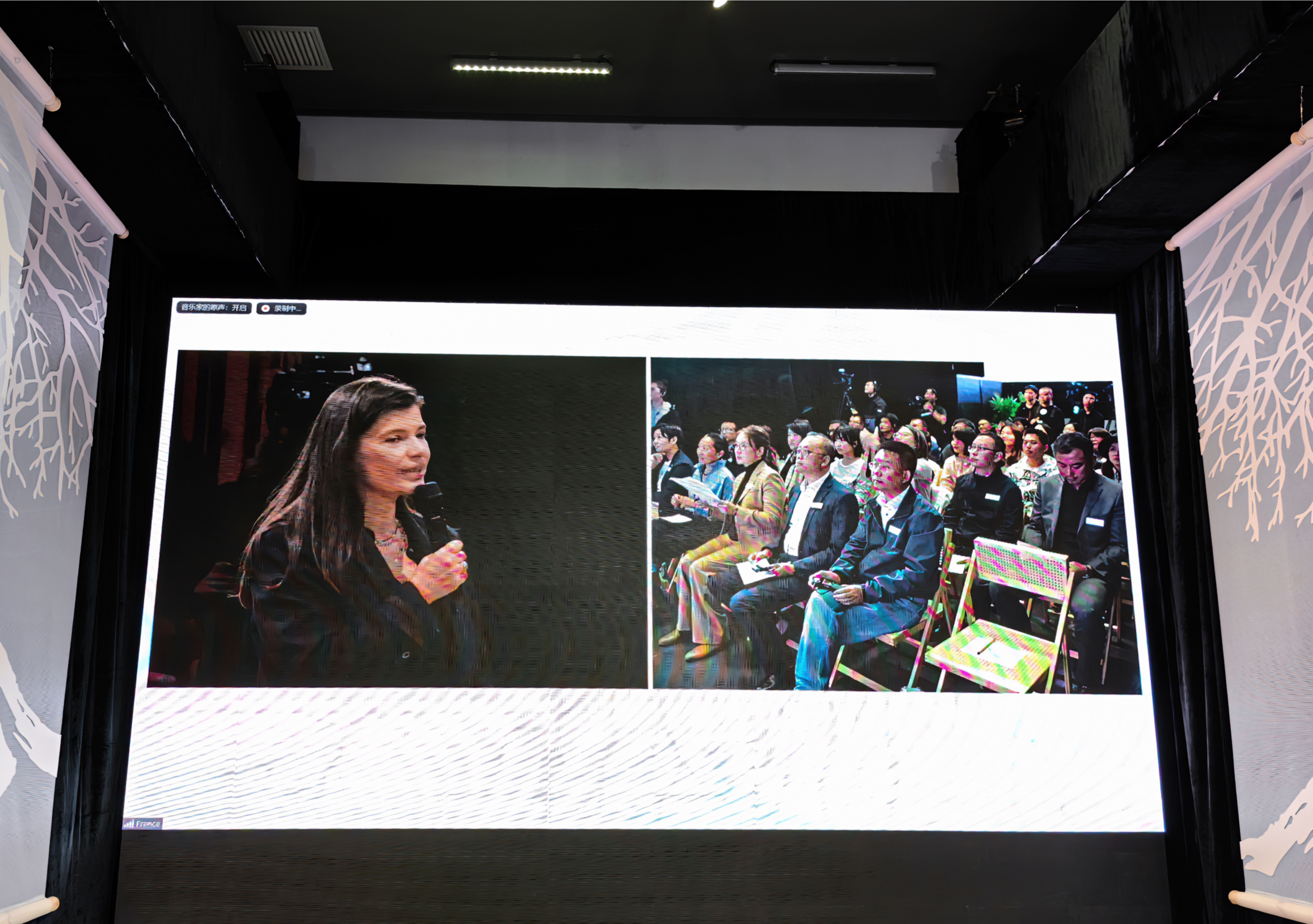
Image by Luxe.CO
At the Ningxia satellite venue, Anne Cai, Vice President of Human Resources and Corporate Communications at Moët Hennessy Diageo China (pictured below), said: “As a vast land with diverse soils, we hope to use this international ‘World Living Soils Forum’ as an opportunity to bring the voices of sustainable development from all sectors of China to the world. We also aim to showcase the years of soil protection efforts from different regions across China, while exploring the future of soil regeneration. As advocates of soil protection and regeneration, we will remain committed to providing high-quality collaborative opportunities and platforms, working together with all sectors to protect our soil and safeguard the shared home of humanity.”
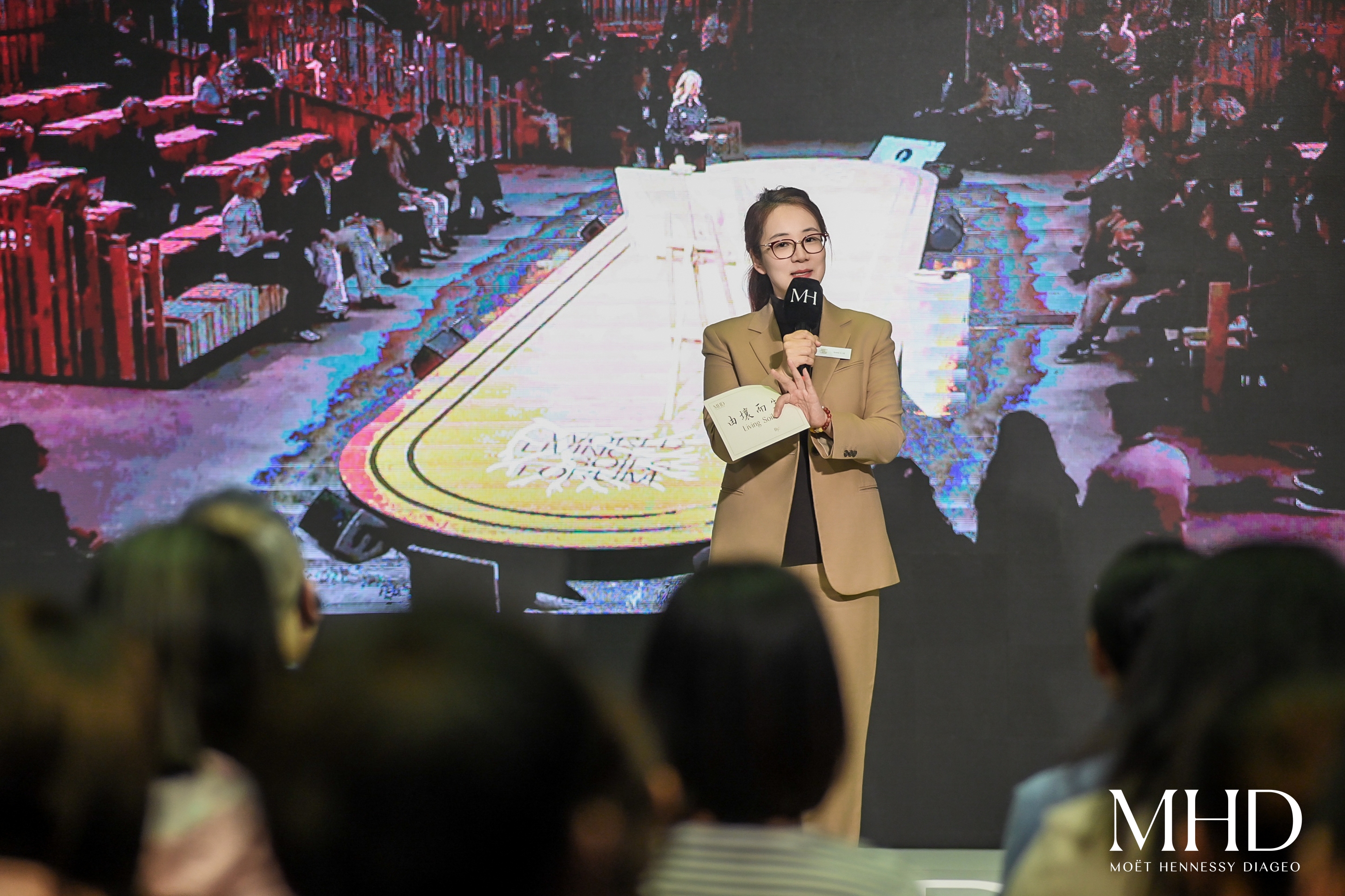
Representatives from the scientific community, civil society, corporate entities, and public welfare organizations also shared their research and hands-on experiences. These included Jia Hanzhong, a renowned expert in global soil persistence radical research; Li Mingguo, founder of “Tian Zi Biodiversity,” China’s first private biodiversity conservation zone; Su Long, Estate Director of Chandon China; Tang Youde, partner of Hennessy’s “Forest Destination” project; and Huang Hsienyun, co-founder of Næra Organic.
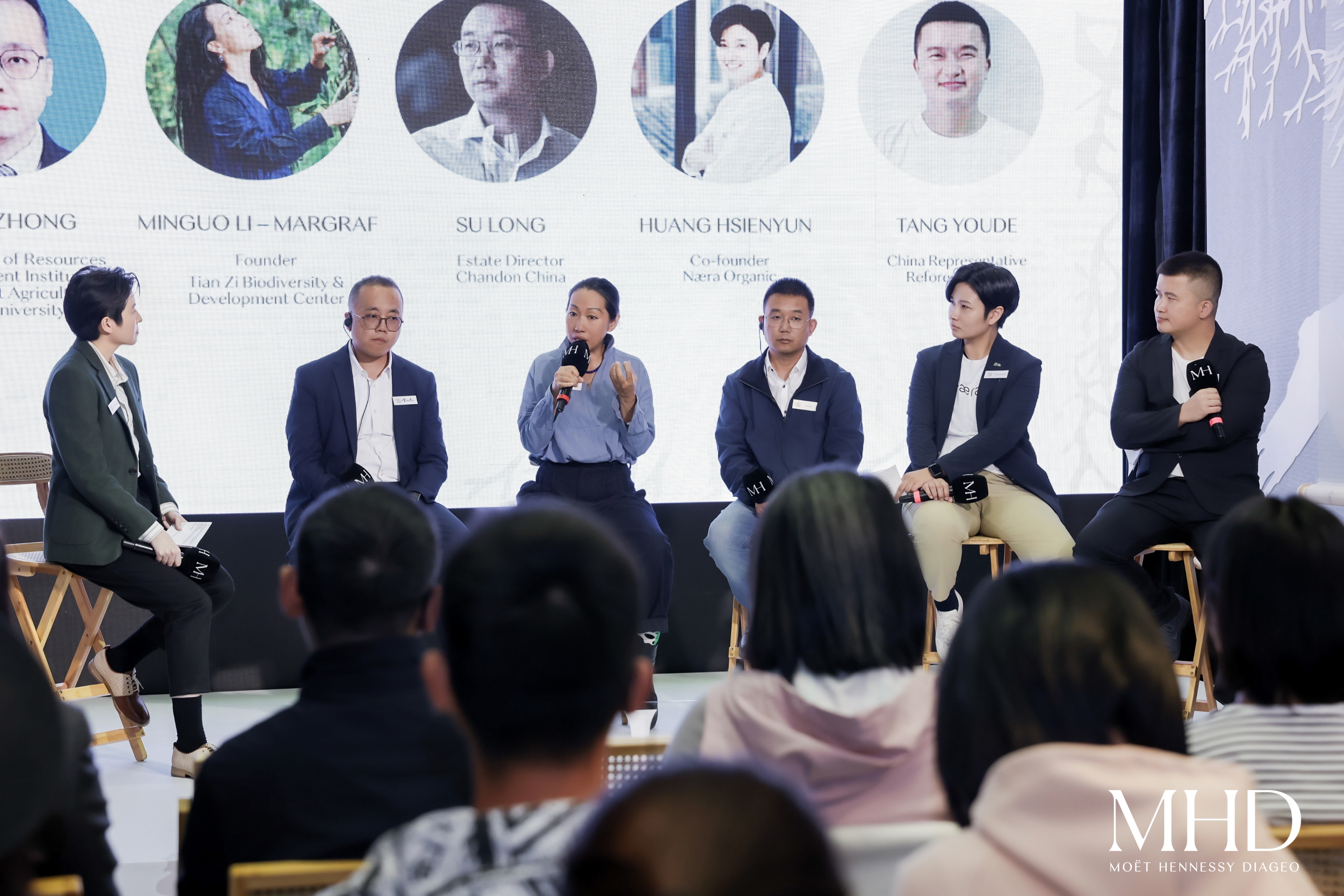
Challenges Facing China’s Soil
Jia Hanzhong pointed out, “The primary challenge we are facing today is the contradiction between our intensive use of soil resources and the limited capacity of the land. China’s arable land per capita is only 1/7th that of the U.S., 1/4th of France, and even smaller than that of the U.K. The long-term intensive production of soil, industrialized farming methods, and the excessive use of chemical fertilizers and pesticides have led to issues such as water loss, soil desertification, acidification, salinization, and pollution. Collectively, these forms of degradation may account for up to 40% of our national territory.
In the Loess Plateau, including Ningxia, severe water and soil erosion are prominent. In the northwest and northern regions, overgrazing and deforestation for agriculture have caused desertification, while excessive use of Yellow River irrigation has led to salinization issues. In the south, acidification is a concern due to the overuse of fertilizers, with the pH levels in many areas dropping from over 6 to below 4. Meanwhile, in the northeast, the organic matter content in soil has gradually declined from over 5% to just over 3%. To address these problems, we need to find a balance between intensive agricultural production and soil health.”
Rainforest Restoration in Xishuangbanna, Yunnan
Li Mingguo shared her story: “Yunnan is home to China’s last tropical rainforest. Our first task was to study the rainforest and the species within it. My late husband, Mr. Josef Margraf, began his rainforest restoration work in Xishuangbanna in 1997.
We chose to begin our efforts in remote, neglected areas where large-scale monoculture had devastated most of the forest. We established China’s first private biodiversity center there, aiming to restore the mountain tropical rainforest to its former glory. (Note: In 2000, Dr. Josef Margraf and his wife, Li Mingguo, created the 6-square-kilometer Tianzi Biodiversity Reserve on Bulang Mountain to restore the orchid habitats and mountain rainforest biodiversity in the Xishuangbanna region.)
It has now been 24 years, the equivalent of two cycles, and we’ve seen the mountains grow lush again and the forest regrow—this is what we mean by ‘Living Soils.’ These soils support the tropical rainforest, and we can personally see and feel the humidity and temperature the rainforest brings. At the time, there were only a few tea farmers in the area, and tea was very cheap. Now, tea from this region has become the most expensive tea. Only healthy soil and a good micro-ecosystem can produce high-quality tea.”
Regenerative Agriculture at Chandon Winery, Ningxia
Su Long said, “Ningxia is a small region surrounded by desert on three sides, yet it has 17 different soil types. Chandon Winery grows its grapes on the eastern slopes of Helan Mountain, where the soil is classified as light-gray calcium soil.
Our region’s main soil issue is its high pH level. When the winery was first established, the soil’s pH was 8.5, and organic matter content was only 0.6-0.7%. After more than a decade of cultivation, we have managed to raise the organic matter content to 1.5%. This has been an extremely challenging and slow process. In 2020, we started the organic certification process, and this year we received dual organic certification from both the EU and China.
We also incorporated the local farmers’ wisdom into our vineyard management by planting white peas between the grapevines. One of the major challenges in organic farming is the scarcity of nitrogen-rich fertilizers, but white peas provide nitrogen to the grapevines. This reduces the need for additional resources after planting.
We’ve also installed solar panels, so all our electricity, including the power for this live broadcast, comes from clean energy. We also recycle the grape skins and branches, crushing and processing them before returning them to the soil, much like the poetic phrase: ‘Turning into spring mud to protect the flowers.’
The healthier the surrounding environment and the higher the biodiversity, the richer the flavor and quality of the wine produced from these grapes.”
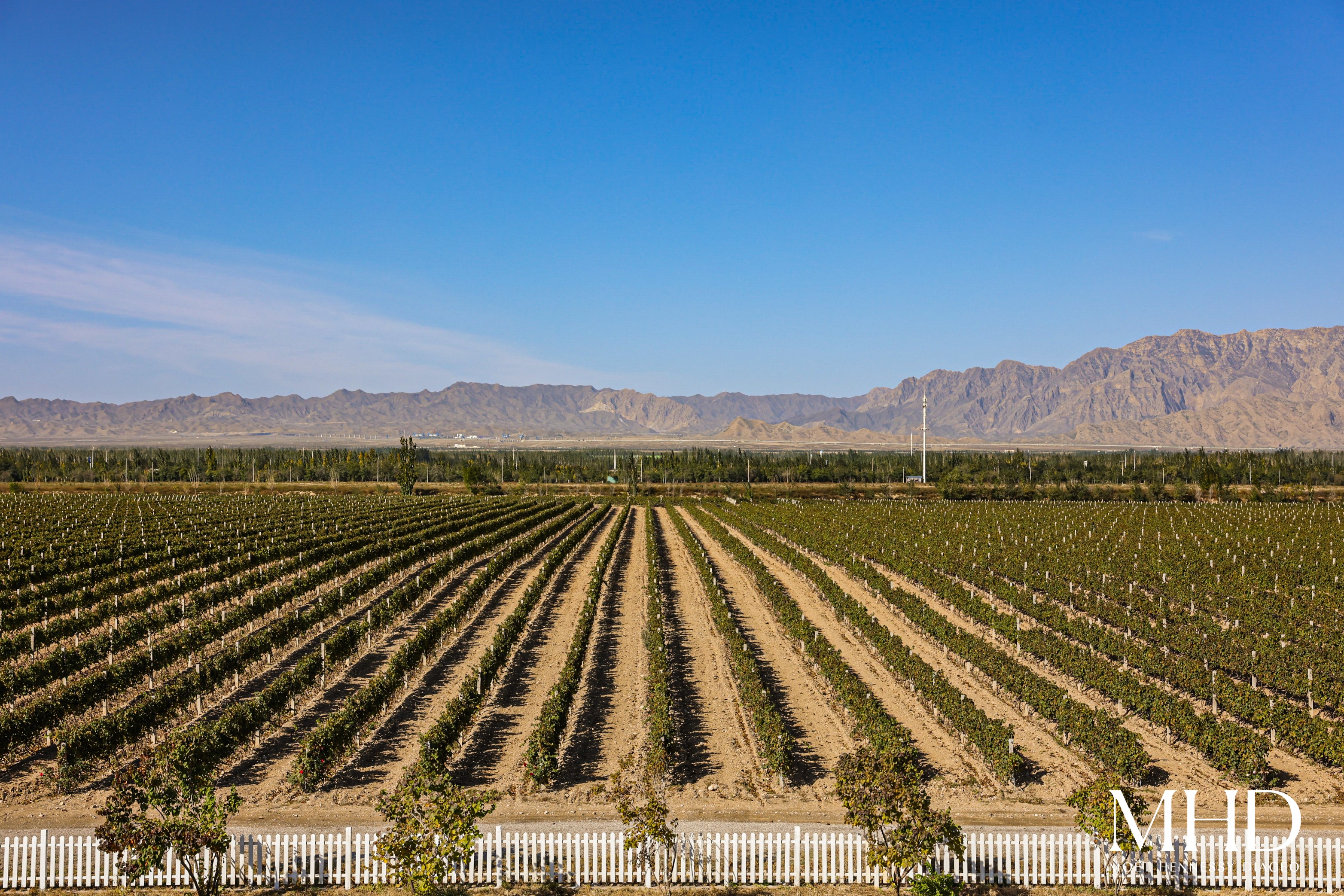
Forest Restoration in Guizhou
Tang Youde introduced the “Forest Restoration Project,” which has been running for 15 years with a single mission: large-scale restoration of forestry and agroforestry ecosystems.
“Thanks to long-term support from Hennessy, we started a project in 2021 in Qianlong County, Guizhou, an area severely affected by desertification. From 2021 to 2022, we planted more than 1.5 million trees across over 500 hectares of land, revitalizing the local ecosystem. In addition to restoring the environment, our project has created numerous jobs, particularly for local women.”
Before the forum, the Chinese participants visited Chandon Winery, where they took part in the “Living Soils” workshop. Through an engaging “deep dive into the soil” experience, they gained a vivid understanding of the importance of protecting soil ecosystems.
More than 600 international guests at the main venue in Arles also connected remotely with participants and audiences at the Chinese forum, engaging in a “twin-city dialogue” in real-time. Together, they used Chinese calligraphy brushes to draw the four characters for “Living Soils,” pledging their shared commitment and determination to protect the soil.
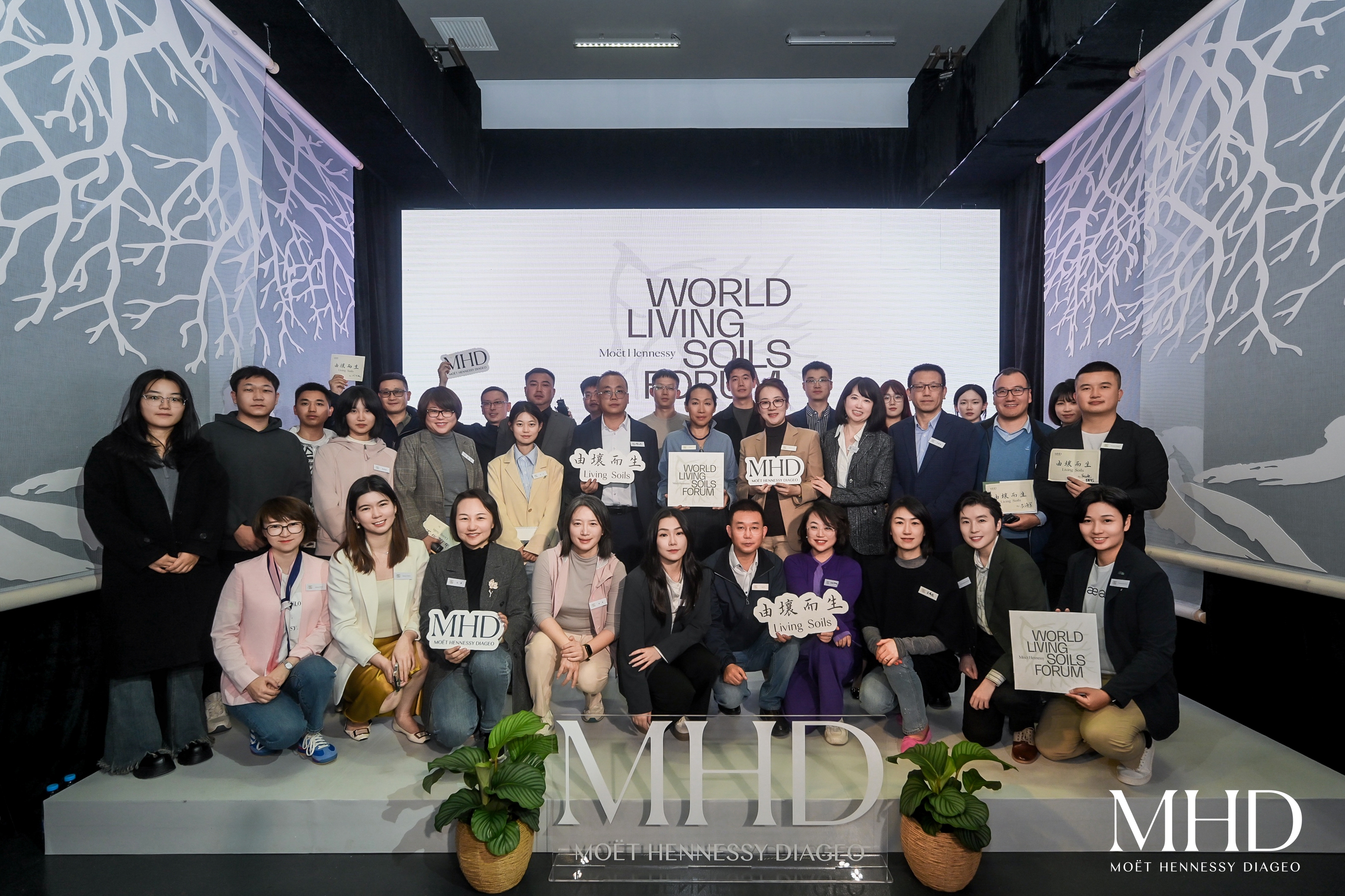
About the World Living Soils Forum
Soil is a complex and fragile ecosystem, intricately connected to water, biodiversity, and climate. Agriculture, the economy, and human health all depend on the condition of the soil. However, over 40% of the Earth’s soils have already been degraded, making soil protection and regeneration an urgent global priority.
To address this, Moët Hennessy launched the inaugural World Living Soils Forum in June 2022 in France. The event brought together scientists, international experts, individuals dedicated to soil regeneration, and key players in viticulture. Through diverse perspectives and cross-disciplinary discussions, participants shared knowledge and actions related to sustainability, advocating for societal and corporate focus on soil protection, health, and regeneration.
From October 8 to 9, 2024, Moët Hennessy partnered with ChangeNOW, a globally renowned organization accelerating ecological and social transformation, to host the second World Living Soils Forum. The event took place in three locations: the main venue in Arles, France, and satellite venues in Ningxia, China, and California, USA. Over the course of two days, more than 70 sessions were held, featuring 160 speakers and over 600 attendees discussing how to accelerate soil regeneration—a critical issue affecting global natural resources. Key topics included:
- Financing the transition: Mobilizing the necessary financial resources to support regenerative agricultural practices.
- Soil health and measurement: Establishing metrics and shared methodologies to track and improve soil health globally.
- Nature-based solutions: Emphasizing nature-inspired solutions like agroforestry and regenerative hydrology to protect biodiversity and soil fertility.
- Social engagement: Raising public awareness about the importance of soil health and encouraging responsible consumption.
At the Ningxia venue, participants engaged in a “cross-national dialogue” with over 600 international attendees at the Arles main forum, exploring the deep connections between humans, the universe, nature, and each other. They shared China’s leading initiatives and cutting-edge practices in soil protection.
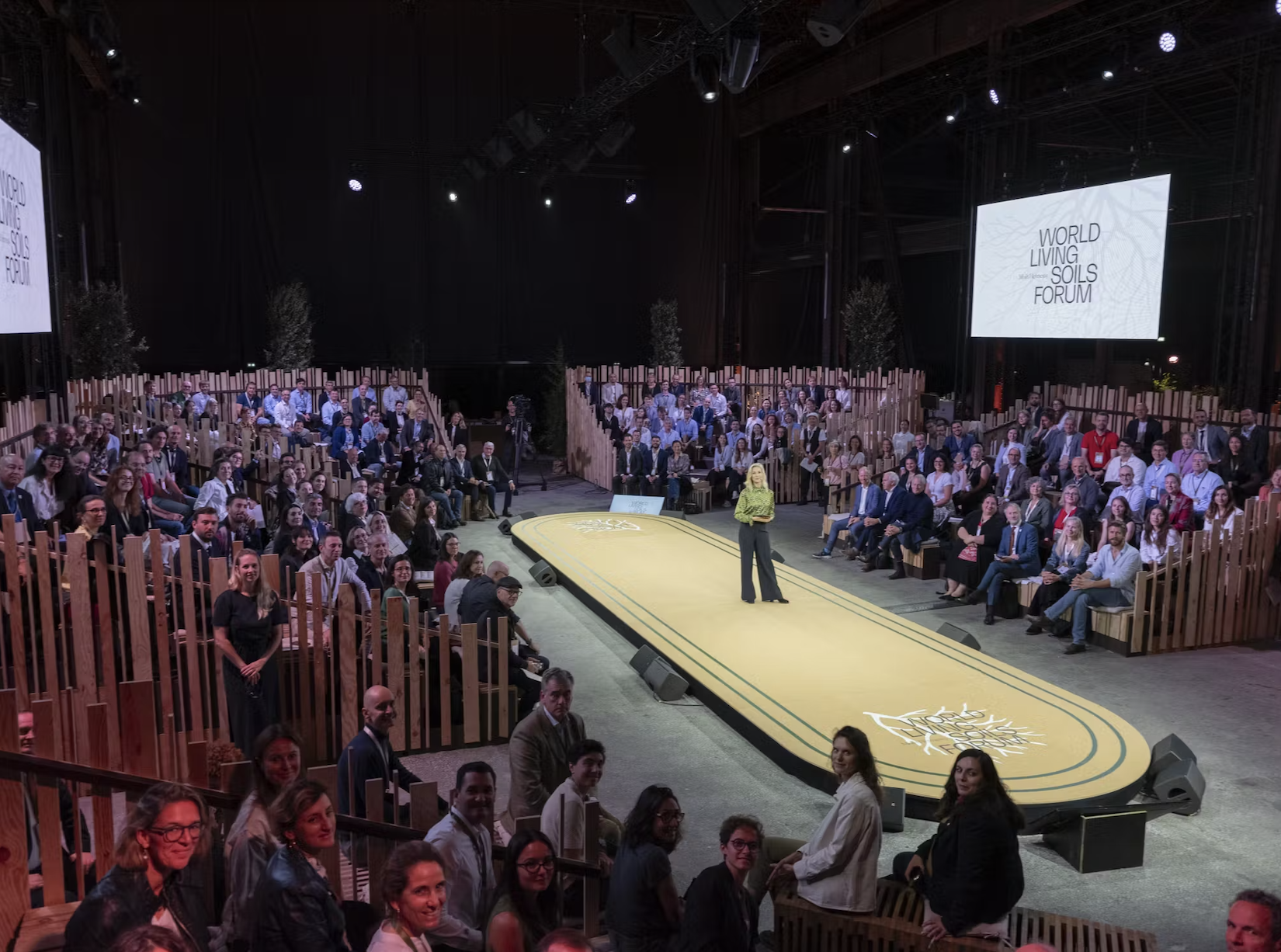
About Moët Hennessy
Moët Hennessy, the wines and spirits division of LVMH, is one of the global leaders in premium wines and spirits, with 27 iconic brands. Many of these brands boast centuries of history and distinct charm, synonymous with renowned origins and terroirs. The group and its brands are celebrated for their product quality, relentless pursuit of excellence and innovation, and embodiment of French artistry.
Moët Hennessy is committed to its sustainability program, Living Soils Living Together, focusing on four key pledges: soil regeneration, climate action, social responsibility, and employee empowerment. The group is dedicated to being responsible to all its partners and to protecting humanity’s shared home, coexisting sustainably with soil, nature, and communities. Moët Hennessy has completed a full company-wide carbon footprint assessment and is working towards a 50% carbon reduction by 2030.
About Moët Hennessy Diageo China (MHD China)
China is the second-largest market globally for Moët Hennessy. The company established Moët Hennessy Diageo China (MHD China) in partnership with Diageo in 2002 in Shanghai.
Today, MHD China has 10 offices across the country and operates in over 50 cities. Its product portfolio includes Cognac (Hennessy), Champagne (Moët & Chandon, Veuve Clicquot, Dom Pérignon, Armand De Brignac, Krug, Ruinart), single malt whisky (Glenmorangie, Ardbeg), blended whisky (Johnnie Walker Red Label/Black Label), vodka (Belvedere), tequila (Volcán X.A.), wines (Cloudy Bay, Minuty, Chateau d’Esclans, Terrazas de los Andes, Ao Yun, Numanthia, Joseph Phelps, Mouton Cadet, Mapu), and sparkling wine (Chandon).
Guided by the Living Soils Living Together initiative, MHD China has made significant progress across multiple fields. In 2023, the company successfully hosted the first Living Soils Living Together sustainability forum in Shanghai. Through the “Art is For Everyone” artist collaboration project, MHD China co-created the “Sustainability, Living Together” exhibition with young Chinese artists. For internal employees, MHD China held three Sustainability Citizen Week events, with over 85% employee participation nationwide, fostering collective action toward the company’s sustainability goals.
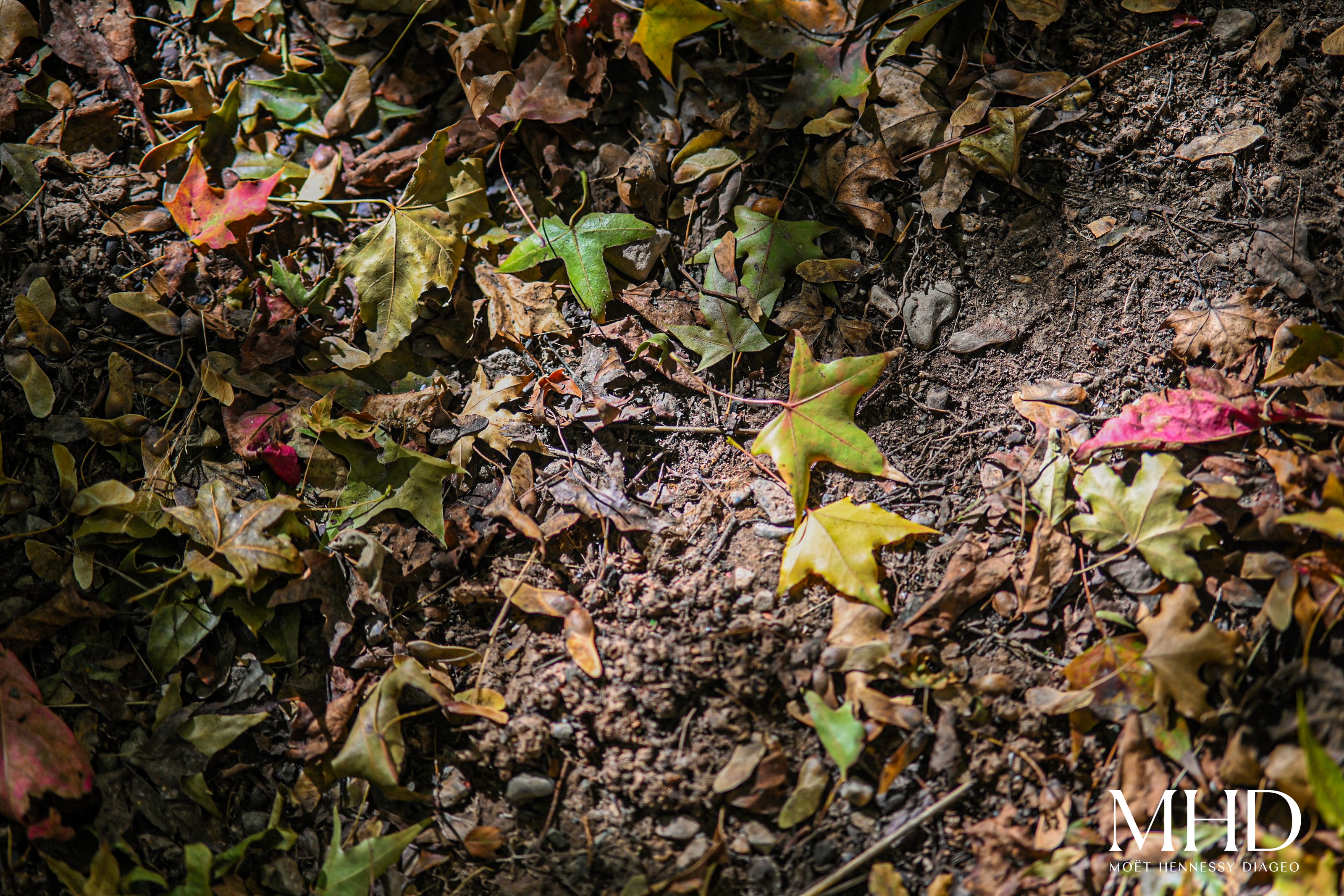
|Source: Official press release
|Image Credit: Unless otherwise noted as “Luxeplace.com,” images are provided by MHD China
|Editor: LeZhi

